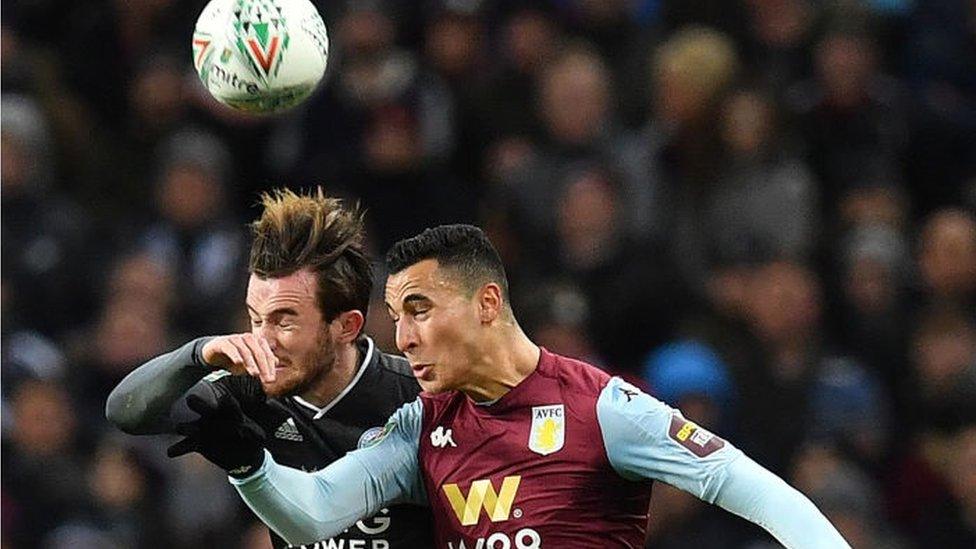Head injuries in sport: 'I don't remember any of the game'
- Published
Nic Evans suffered a seizure, sickness and memory loss after a concussion
A former Wales rugby player who had a seizure, sickness and memory loss says female athletes should be heard in the discussions around sport head injuries.
Retired flanker Nic Evans said she had no memories of her first appearance at Twickenham as a result of concussion.
The UK digital, culture, media and sport committee is to begin an inquiry into sport and long-term brain injury.
Governing body, World Rugby, said the welfare of all participants was its ongoing priority.
Evans, 43, who played for Wasps Ladies, will undergo tests this month to assess whether she is facing "the worst-case scenario" after suffering what she believes could be hundreds of concussions in her career.
Her first appearance at Twickenham should be a cherished memory but instead it is a blank.
"I don't remember any of the game," she said.
"I don't remember playing, I remember before the game and then I remember being home in Wales and I think that happened throughout my playing career."
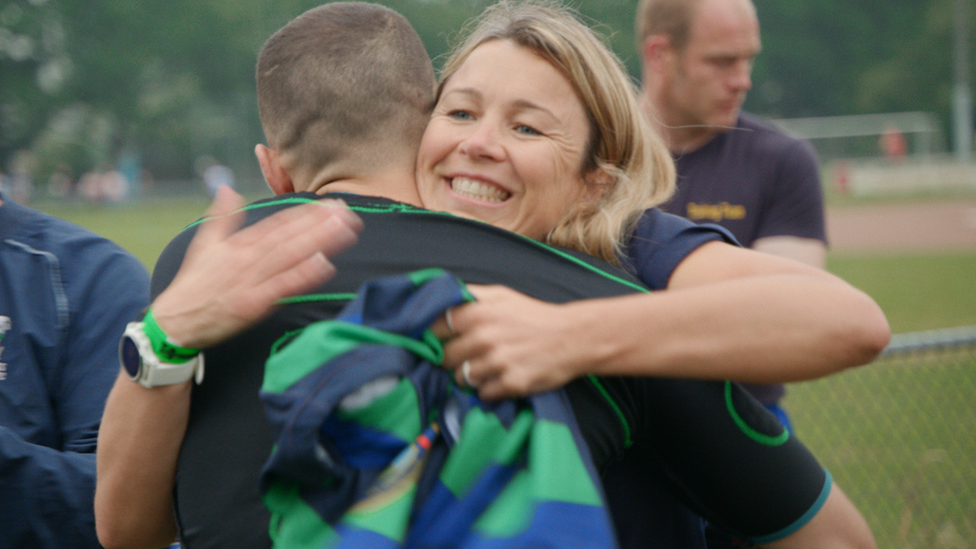
Nic Evans said the stories of women in sport need to be considered when talking about head injuries
Evans, originally from Caerphilly and now a lecturer, can recall one incident in which she was tip-tackled on to a dry, hard pitch resulting in a seizure lasting several minutes.
"I lost my [driving] licence for a year because they weren't sure whether it was epilepsy or concussive seizure," she said.
"That happened in the June, I was back in pre-season training in the July.
"I probably spent the whole of that year training and playing with really bad headaches, feeling really nauseous, feeling really sick."
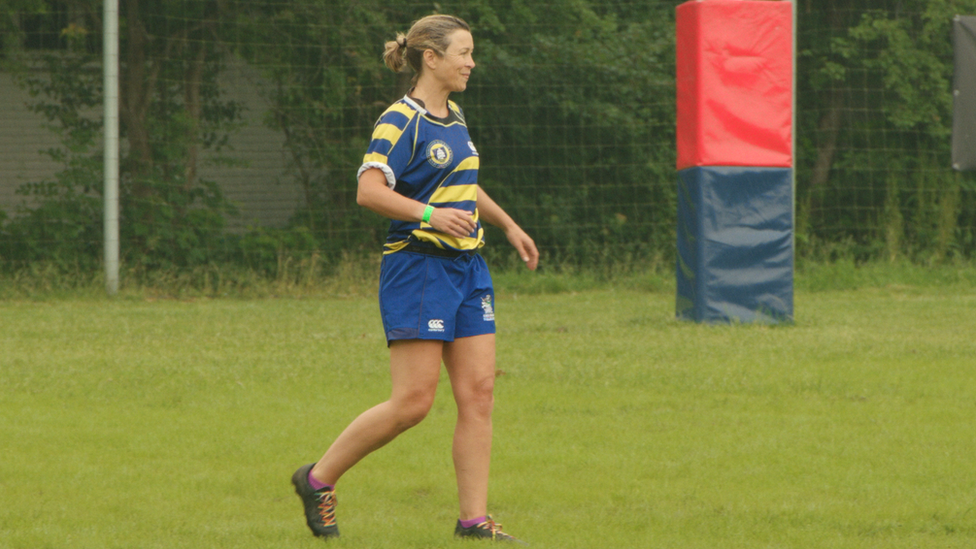
Evans recalls "headaches, feeling really nauseous, feeling really sick" after one incident
The player-turned-coach said, at the time, she just wanted to play rugby but she had not ever considered she could have been doing "long-term damage".
"I wouldn't have put myself at risk of not being able to live fully later in life," the mother-of-three added.
On Tuesday, MPs will question consultant neuropathologist Prof Willie Stewart and neurodegenerative disease specialist Prof Craig Ritchie.
The DCMS committee will look at the role of national governing bodies, their responsibilities to understand risks involved for players, and what actions might be taken to mitigate them.
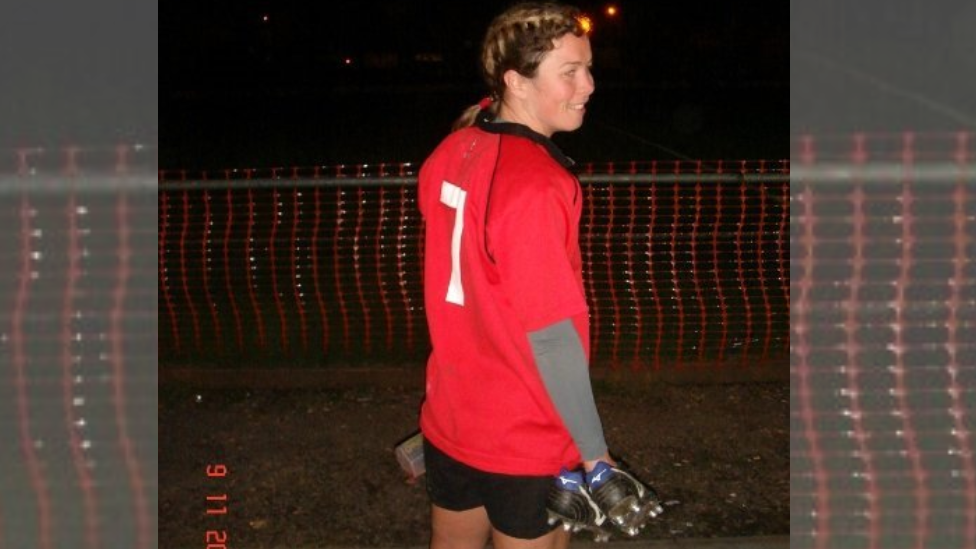
Evans said while playing she had not considered she could have been doing "long-term damage"
Debates about the links between sport - and specifically rugby - with serious head injury were sparked again when former Wales international Alix Popham and former England World cup winner Steve Thompson launched a legal action after being diagnosed with early onset dementia last year.
The Professional Footballers' Association is also setting up a taskforce to further examine the issue of brain injury disease in football, following high profile campaigns by families of some former players.
Evans said: "I got really frustrated really because I read all these stories about the men in the game and I just thought we play too.
"I work within PE and sport and a lot of sports science research is about men, and only now are we starting to see sport science about women because we are different, our bodies are different, our physiology is different.
"Do the protocols need to be different because women suffer worse concussions? Maybe.
"I don't have the answers but what I do think is really important is that women are at the table too. Our stories also need to be considered."
Swansea University research from 2020 suggested female rugby players were at a greater risk of suffering concussion than men - and the effects were more severe.
Elizabeth Williams, a senior lecturer in biomedics, said men and women were more likely to suffer different kinds of head impacts and women's brains may have a higher risk of injury when subjected to the same external force.
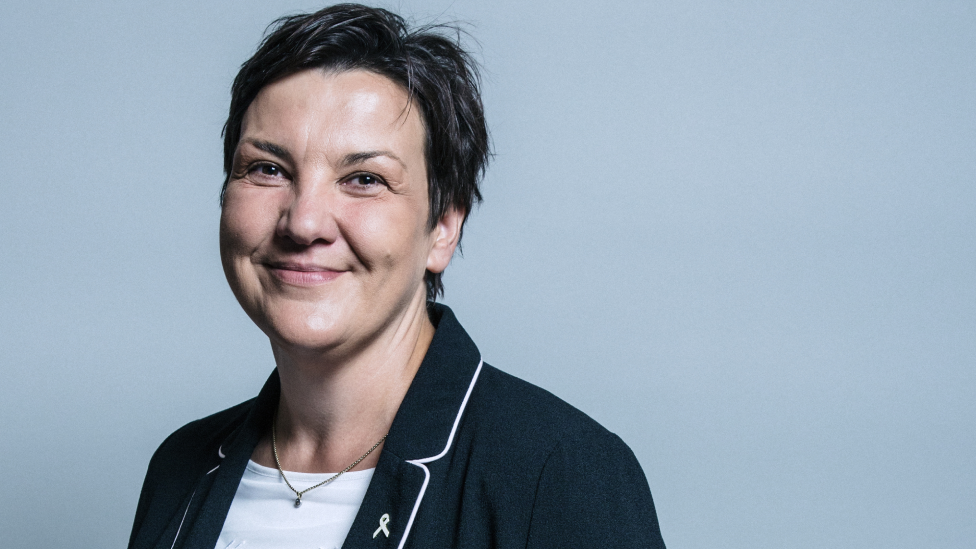
Former Wales prop Tonia Antoniazzi MP wants a "call to arms to all our sisters that have played rugby since the '80s"
Tonia Antoniazzi, Labour's Gower MP and a former Wales international prop, said putting the focus on the men's game was a "flawed" approach.
"What concerns me is there are very few women's voices about their injuries and how they've had an impact on their lives throughout concussion," she said.
"We need to be talking about it.
"It also needs to be a kind of call to arms to all our sisters that have played rugby since the '80s to just take notice if they have got any issues around memory, any issues really.
"It's not being looked into."
In a statement, World Rugby said it continued "to invest in and collaborate with women-specific research to inform our injury-prevention programmes".
The organisation added it was equally important that preventative technique is promoted, such as its "Active programme, which, if used regularly, has the potential to reduce concussion risk by up to 60%".
The Department for Digital, Culture, Media and Sport said the inquiry was "evidence led".
It said it was "accepting written evidence to the end of this month".

MEET WALES' OWN PIZZA BOYS: The boys set off on an adventure to push their pizza making skills to the limit
HELL ON WHEELS: Spend some time with Wales’ first roller derby team, the Tiger Bay Brawlers

- Attribution
- Published18 February 2021
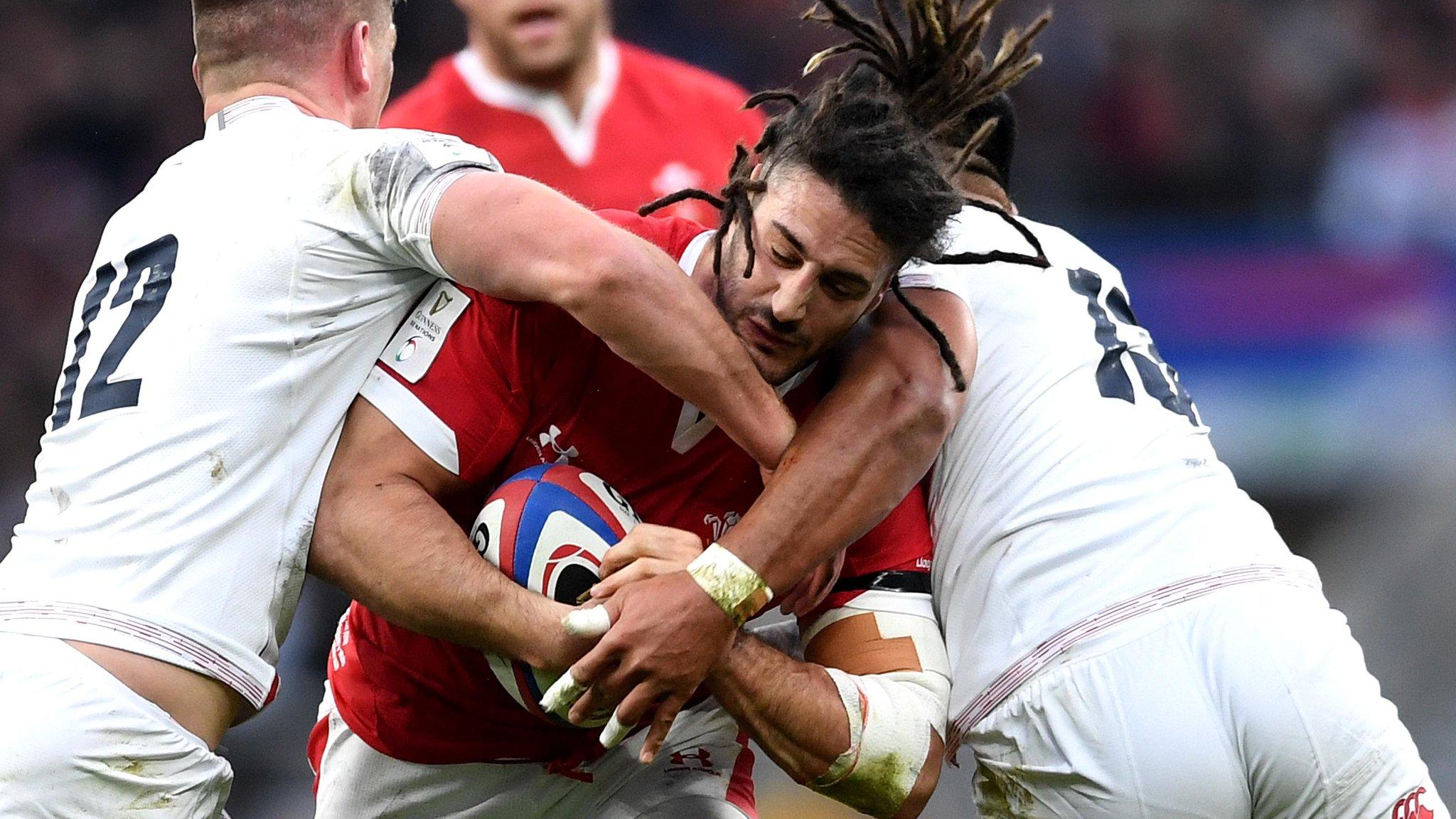
- Attribution
- Published17 December 2020
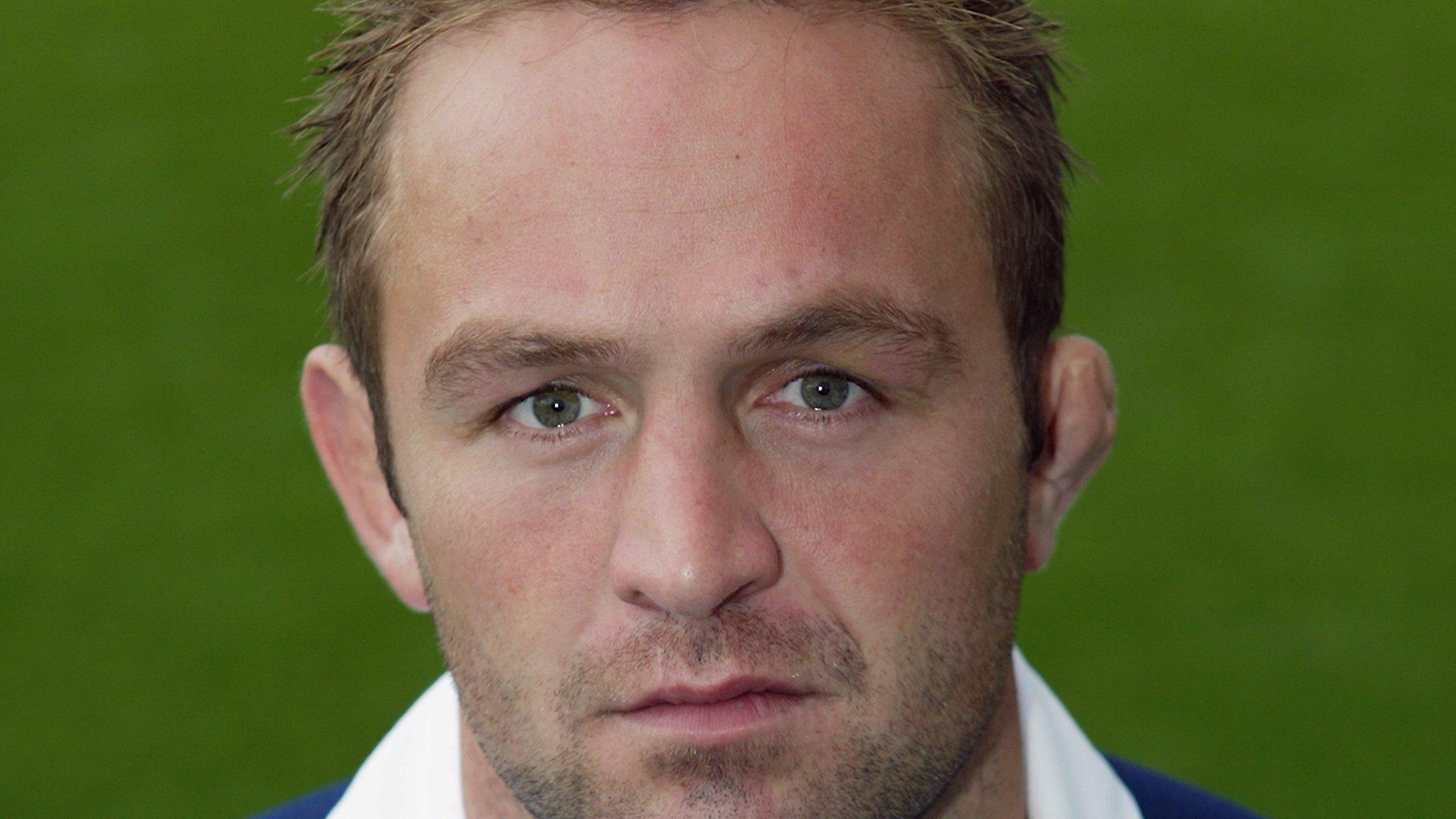
- Attribution
- Published8 December 2020

- Published17 March 2020
